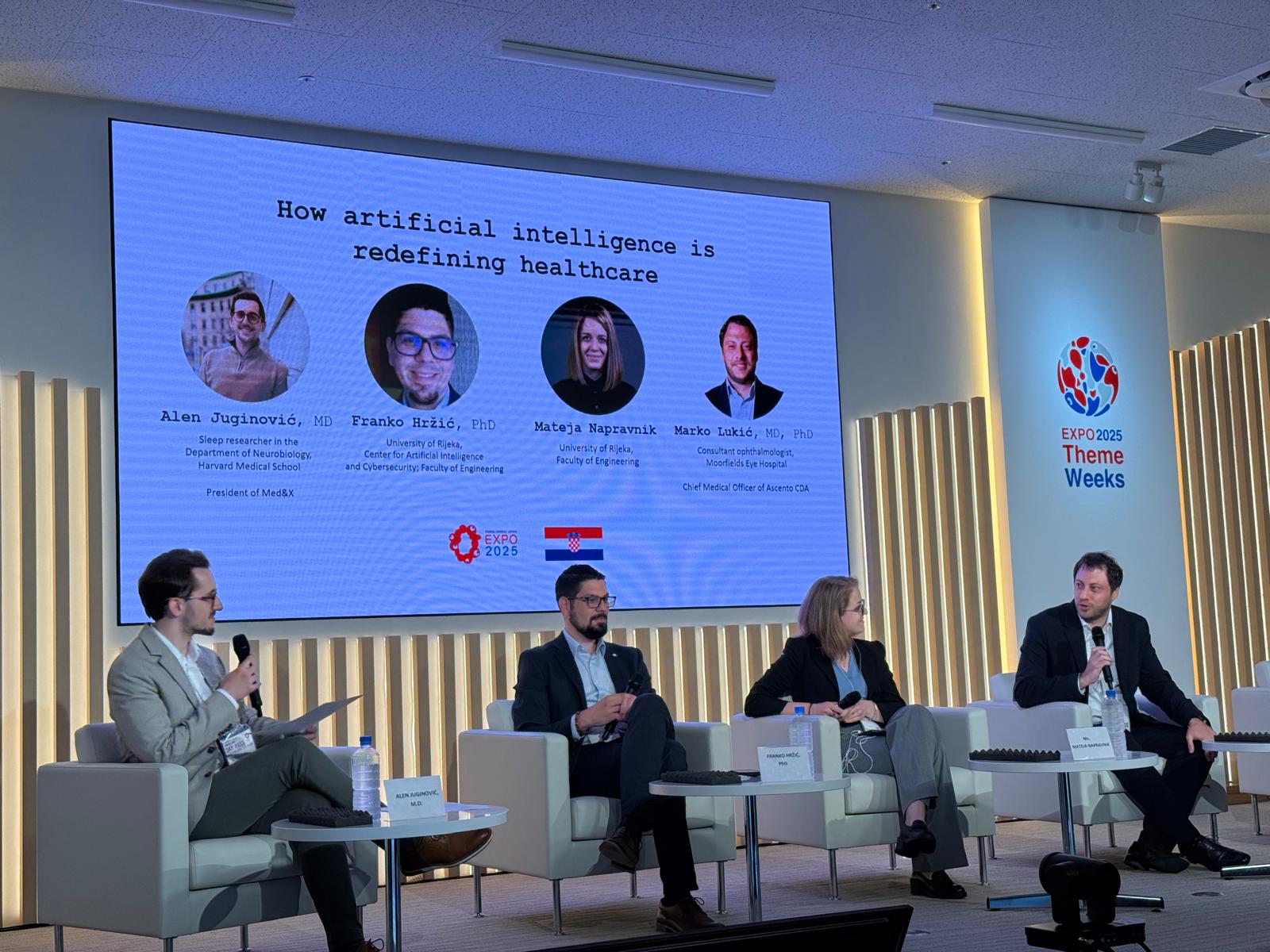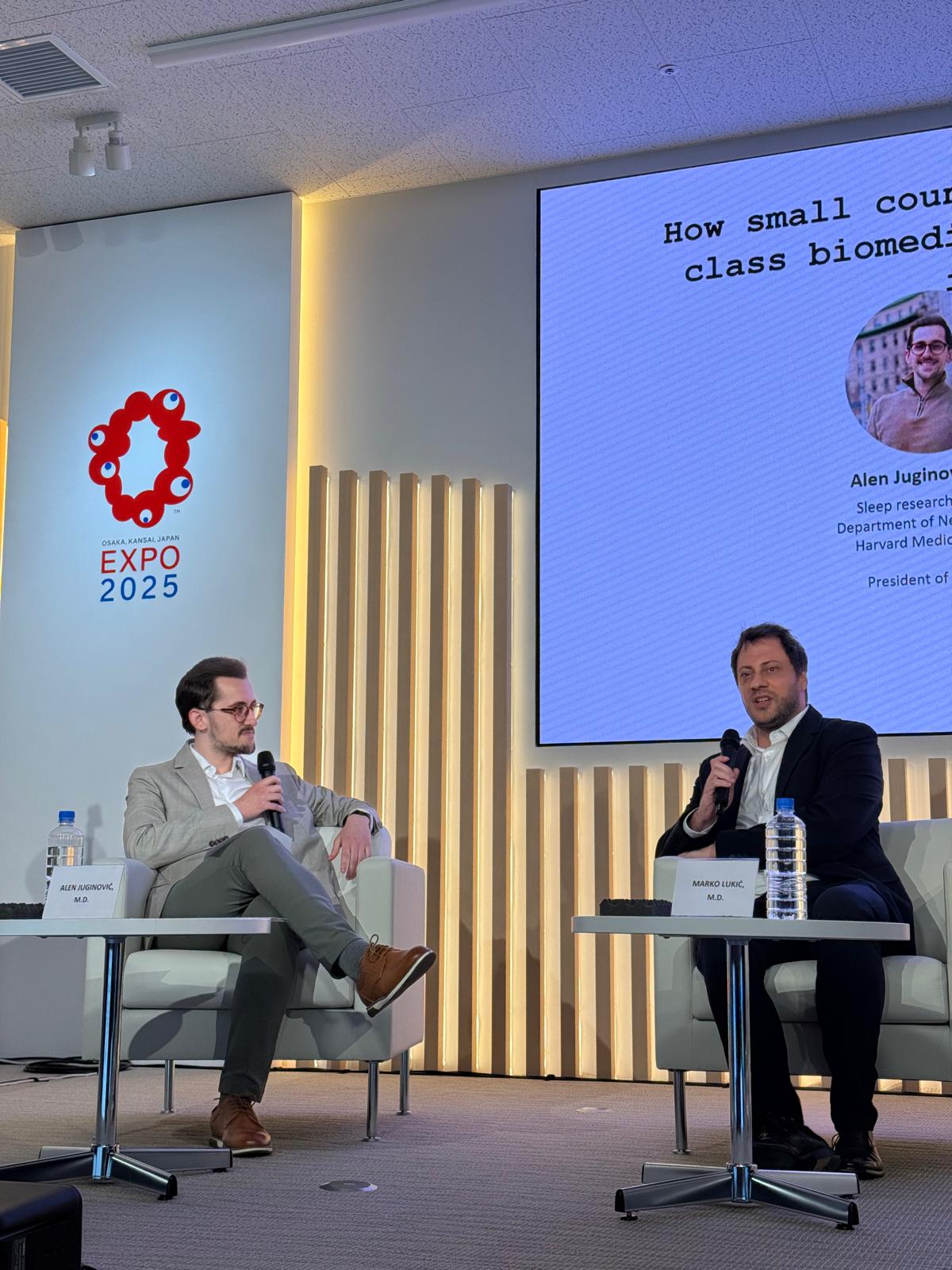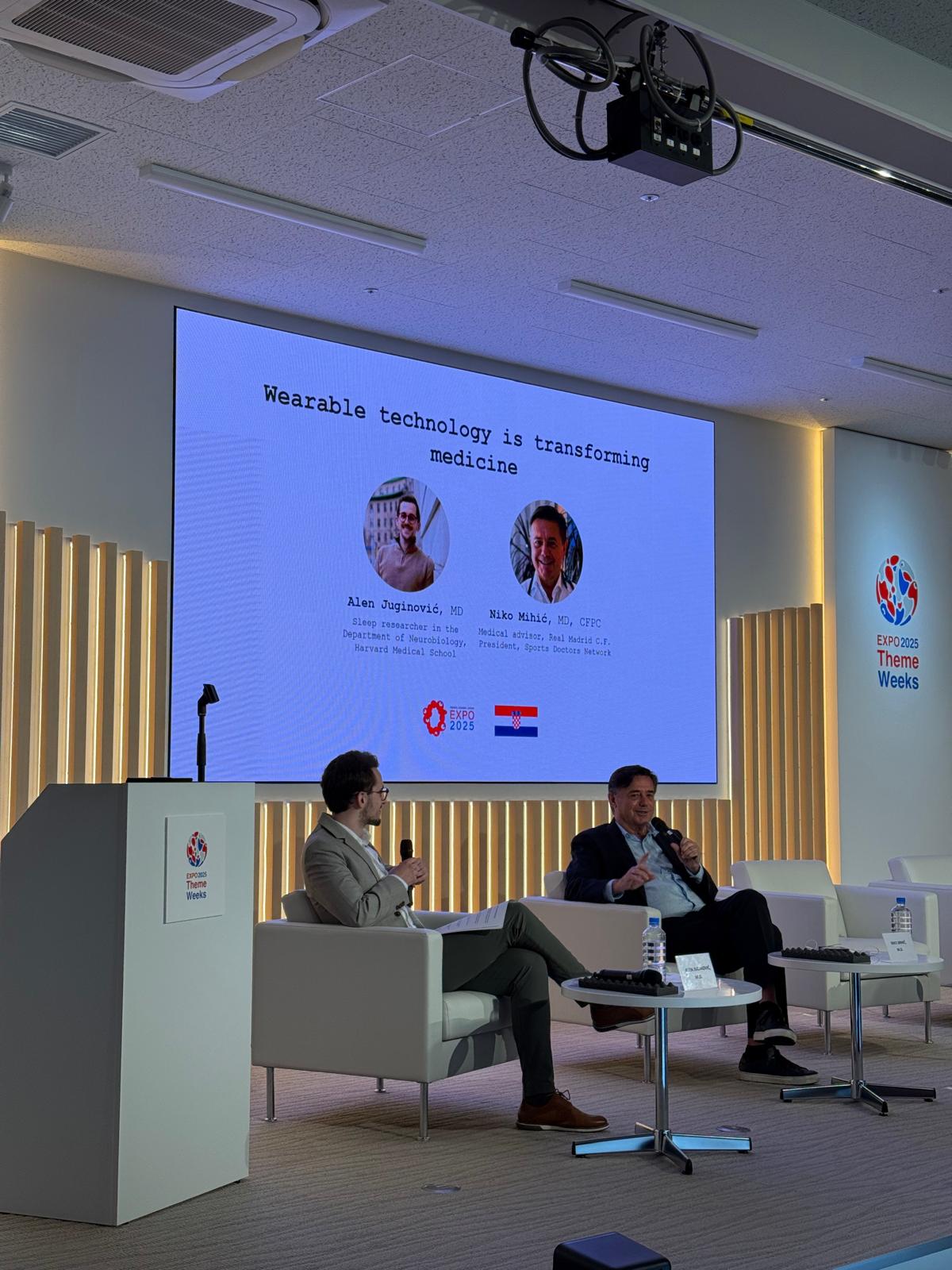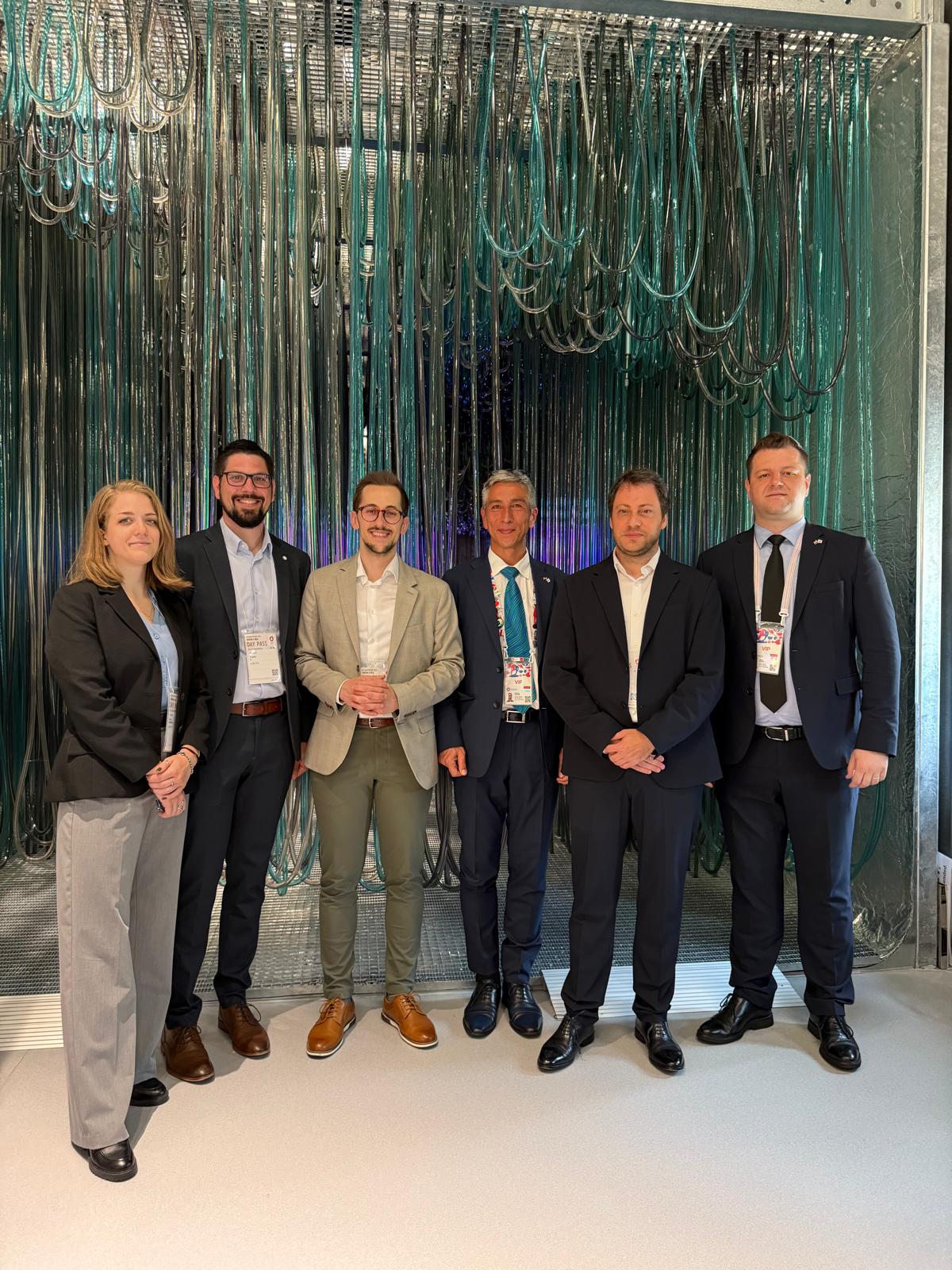At the World Expo EXPO 2025 in Osaka, on July 1, 2025, a professional panel discussion was held under the title: “Croatia as a Global Destination for Health Tourism — and a Forum for the Future of Medicine.”
The forum brought together leading Croatian experts with international experience, including Alen Juginović, MD, postdoctoral fellow and researcher at the Department of Neurobiology at Harvard Medical School and President of Med&X; Niko Mihić, MD, Chief Medical Advisor to Real Madrid and President of the Sports Doctors Network; Franko Hržić, PhD. Center for Artificial Intelligence and Cybersecurity, University of Rijeka; Marko Lukić, MD, PhD, Consultant Ophthalmologist at Moorfields Eye Hospital (UK), CMO Ascento CDA and Ms. Mateja Napravnik, Computer Engineer, Faculty of Engineering, University of Rijeka, who primarily presented the links between medical innovations, artificial intelligence and the rapidly growing health and wellness sector.

From wearable devices to the ethical application of artificial intelligence in medicine, the forum highlighted Croatia’s increasingly important role as a hub for health tourism and biomedical innovation — showcasing its scientific potential on a global scale.
The forum featured two main panels: “Wearable Technology: The Future of Health Monitoring” — focused on sleep science and the transformative role of wearable technologies in modern medicine. New devices and wearables are increasingly used to detect hidden health issues such as sleep apnea, insomnia, sleep fragmentation, and circadian rhythm disorders.
“How Artificial Intelligence Is Redefining Healthcare” — explored the future of AI in medicine, particularly in multi-functional learning models and meta-learning, i.e., interconnected AI systems capable of solving complex medical problems.

The second panel addressed key topics such as: how to build and maintain trust and empathy in AI-supported healthcare, the necessity of ensuring high-quality, reliable medical data, and the importance of ethical guidelines and privacy protection in the application of AI.
The panel also emphasized numerous advantages of the Croatian healthcare system — continuity in doctor-patient relationships, strong ties between hospitals and universities, and consistency in collecting medical data. Croatia was highlighted as a country that encourages collaboration through scholarships and multidisciplinary programs aimed at integrating healthcare and technology.

This expert panel was an opportunity to present Croatia as a blend of innovation and healthcare, showcasing Croatian expertise and sending a strong message about the ambitions of Croatian scientists. From AI-based diagnostics to sleep science and elite sports medicine, Croatian professionals demonstrated what the future of healthcare looks like — grounded in ethics, knowledge, and multidisciplinary cooperation.
It was also emphasized that Croatia offers much more than medical care — it provides a space for a holistic and balanced approach to health and well-being. From high-quality partnerships with clinics and health institutions to organizing medical conferences and wellness programs, Croatia is building a solid foundation for sustainable and meaningful health tourism. What sets it apart is the unique opportunity to pursue health, learning, and personal development in a setting of crystal-clear seas, sunny coastlines, and untouched nature.
The concluding message of the panel: Croatia is not just participating in shaping the future of medicine — it is ready to be among the leaders.
